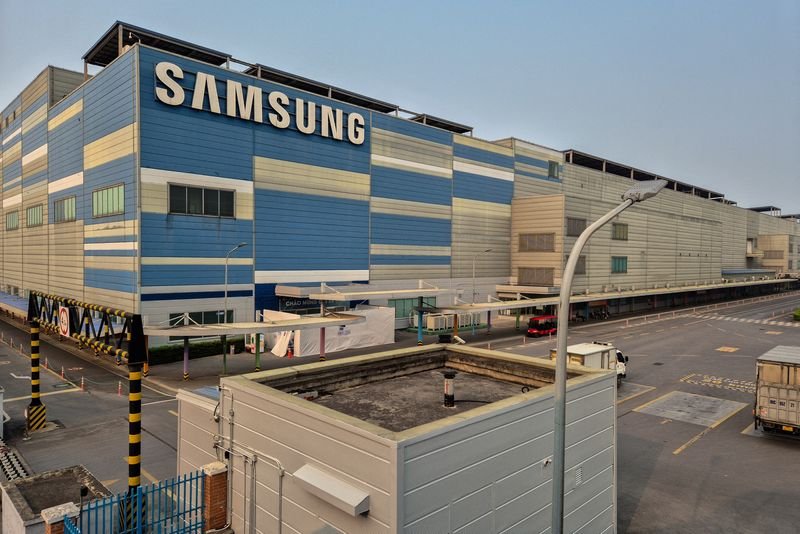Samsung
Samsung Q1 2025 profit drop is expected to reach a significant 21%, as South Korea’s tech giant grapples with weaker-than-expected demand for AI-related chips and continued losses in its foundry business. While there have been some gains in memory chip pricing, they have not been enough to offset the broader challenges across Samsung’s key business divisions.
The anticipated drop in profit has raised concerns among investors and industry analysts, as Samsung had been viewed as a key player poised to benefit from the global AI boom. However, as competition intensifies and supply chain dynamics shift, the company’s performance has been met with renewed scrutiny.
Weak AI Chip Demand Drives Samsung Q1 2025 Profit Drop
A considerable portion of the profit decline is believed to have been caused by underwhelming demand for Samsung’s AI chips. Despite the AI sector experiencing explosive growth worldwide, Samsung’s position in the AI chip space is still in its early stages compared to leaders like NVIDIA.
High-performance AI chips, such as GPUs and custom accelerators, have been largely dominated by competitors. As a result, Samsung’s offerings have not been adopted at the same scale, leading to lower-than-expected revenue from its system semiconductor division.
It has been noted by analysts that AI chip production is capital-intensive and requires not only advanced design but also strong software ecosystem support—an area where Samsung has yet to catch up. Until its product ecosystem matures, market share gains may remain limited.
Foundry Business Remains a Drag
Losses from the company’s foundry segment have also contributed to the projected Q1 profit decline. The foundry business, which handles the contract manufacturing of chips, has struggled with underutilization of capacity and a lack of high-margin orders.
Samsung has continued to face intense competition from Taiwan Semiconductor Manufacturing Company (TSMC), which currently dominates the global foundry market. TSMC’s technological lead in advanced nodes such as 3nm and 5nm has made it the preferred choice for major customers, including Apple, AMD, and Qualcomm.
Efforts have been made by Samsung to attract more clients and invest in next-generation fabrication technologies, but the benefits of these investments are unlikely to be realized in the short term.
Memory Chip Recovery Offers Limited Relief
One area that has shown signs of improvement is the memory chip business. After several quarters of pricing pressure and inventory corrections, prices for DRAM and NAND flash memory have started to rebound. This uptrend has offered some financial cushioning for Samsung, which is the world’s largest memory chipmaker.
However, the recovery in the memory segment has not been strong enough to offset the downturns in AI chips and foundry services. Moreover, the memory market remains vulnerable to shifts in global demand and macroeconomic headwinds.
Broader Market Context
Samsung’s performance is being closely watched as a bellwether for the global semiconductor industry. The company’s diversified portfolio — spanning mobile devices, consumer electronics, and semiconductors — often provides insights into broader tech trends.
In recent quarters, demand for smartphones and consumer electronics has remained relatively stable, but slower than pre-pandemic levels. As such, heavy reliance has been placed on semiconductors for profit growth.
The first-quarter results are expected to be officially announced later this month, but preliminary guidance has already led to downward revisions in analyst expectations.
Looking Ahead
Samsung’s long-term prospects remain solid, especially as AI, 5G, and high-performance computing continue to drive semiconductor innovation. Strategic investments are being made into advanced chip manufacturing, and leadership changes have been initiated to revamp critical business segments.
Yet, in the near term, headwinds are likely to persist. Until demand for AI chips picks up and foundry operations become more competitive, profitability may remain under pressure.
The 21% decline in Q1 profit serves as a clear reminder that even tech giants like Samsung are not immune to industry volatility and shifting demand cycles.


